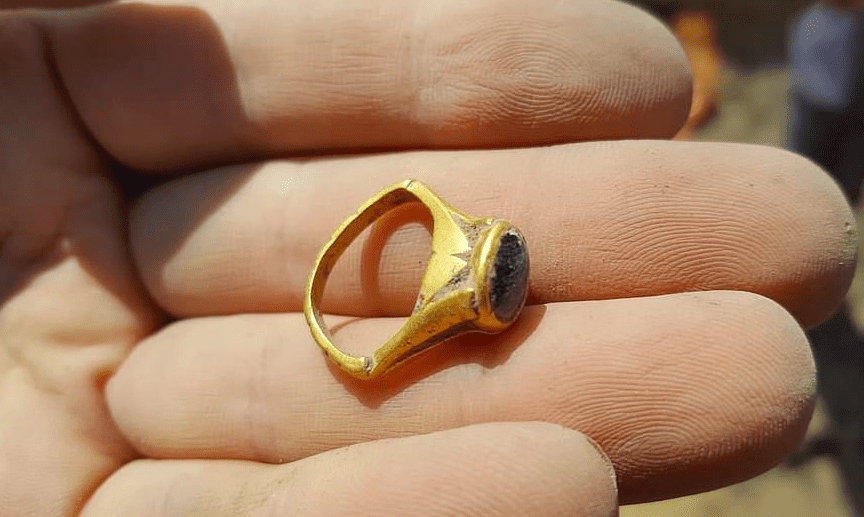An ancient amethyst ring has been unearthed during excavations at the archaeological site of an ancient Byzantine wine factory in Yavne, Israel.
Although found in Israel, the ring of Yavneh that has been described as ‘spectacular’ is thought to be the result of an ancient Greek superstition from the other side of the Mediterranean.
The ring was uncovered by the Israel Antiquities Authority at the 75,000 square metre Byzantine wine factory – the largest ancient wine factory in the world.
“Its size and ostentatiousness indicates it belonged to someone who wanted to flaunt their wealth,” Dr Amir Golani, an ancient jewellery expert at the IAA, told the Times of Israel.
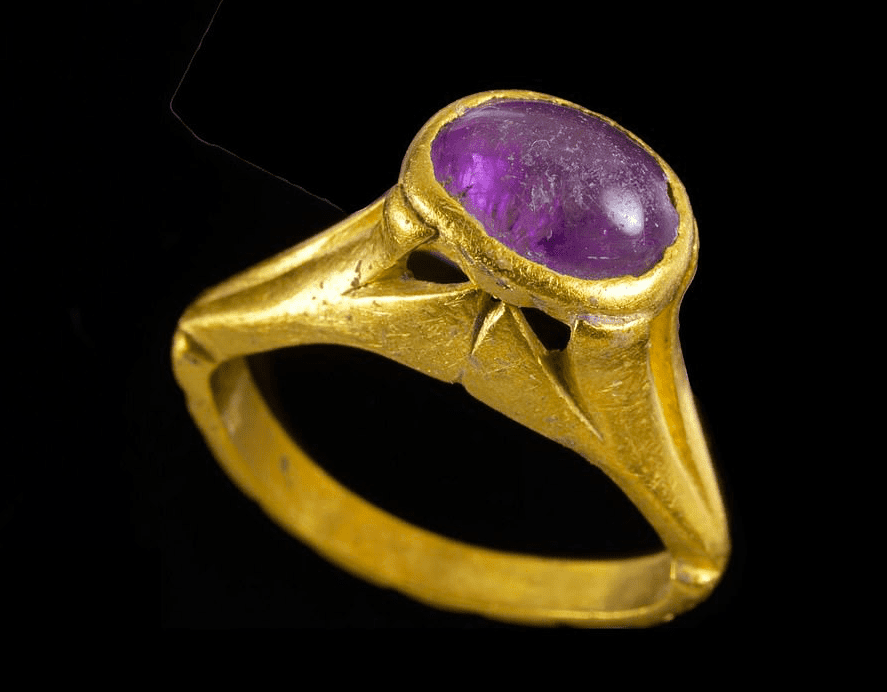
Set in gold, the amethyst ring was most probably worn by the wealthy wine taster in an attempt to ward off a hangover – a myth that originated in Greece and was widely shared in the ancient world, possibly spreading to the Byzantines.
“Many virtues have been associated with this gem, including preventing hangovers, which is ironic as the ring was discovered near the Byzantine wine factory,” says the Israel Antiquities Authority (IAA) in a statement about its findings.
Amethyst is a violet variety of quartz that ranges in colour from pale lilac to a deep reddish-purple. In Greek mythology, amethyst was rock crystal dyed purple by the tears of Dionysus, the god of wine and revelry.
The name of the semi-precious gemstone comes from the ancient Greek word ‘amethystos’ (αμέθυστος), meaning ‘not intoxicated’ - referring to the belief that the stone protected its owner from the effects of drunkenness.
Amethyst was kept as a talisman by affluent ancient Greeks who wore it, carved wine glasses from it, or even ground it into powder and added it to their wine in the belief that it would prevent intoxication and hangovers.
The connection between amethysts and sobriety dates back to at least 320 BC when it was referred to by the Greek poet Asclepiades of Samos in one of his poems.
“It is possible that the splendid ring belonged to the owner of the magnificent warehouse, to a foreman, or simply to an unlucky visitor, who dropped and lost their precious ring, until it was finally discovered by us,” says Elie Haddad, archaeologist and IAA excavation co-director.
“Did the person who wore the ring want to avoid intoxication due to drinking a lot of wine?” Haddad speculates.
“We probably will never know.”
Excavation directors are hesitant about precisely dating the ring; however they estimate that it dates back to the late Byzantine to early Islamic periods (7th century AD), suggesting it is around 1,400 years old.
The IAA has successfully cleaned up the ancient piece of jewellery, capturing the process on a video and managing to keep the ring in one piece.
“Finding an ancient ring with a semi-precious stone intact is rare,” says Dr Golani.
Unfortunately though, the archaeologists on the site were not so lucky a few months ago upon finding a whole and perfect 1,000-year-old chicken egg from the Islamic period – an incredibly rare occurrence in archaeology- only to have researchers break it shortly after.
Working on the mammoth site for the past year, excavators have also uncovered five massive wine presses, each 2,400 feet; warehouses for ageing and marketing the wine; wine vessels; as well as kilns for firing the clay vessels used to store the wine.
In its prime the ancient factory produced up to two million litres of wine per year, a staggering volume considering that the whole of the United States currently produces 2,333,900 litres of wine annually, whilst the entire United Kingdom produces just short of eight million litres of wine per year.
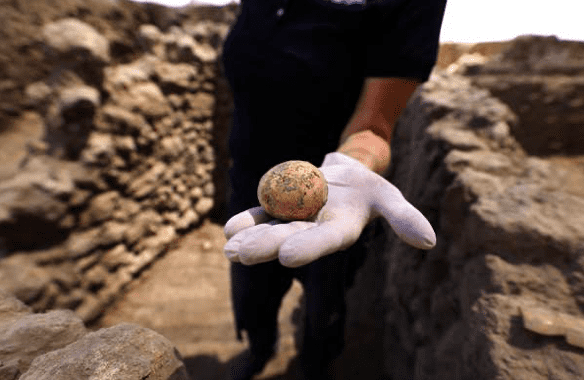
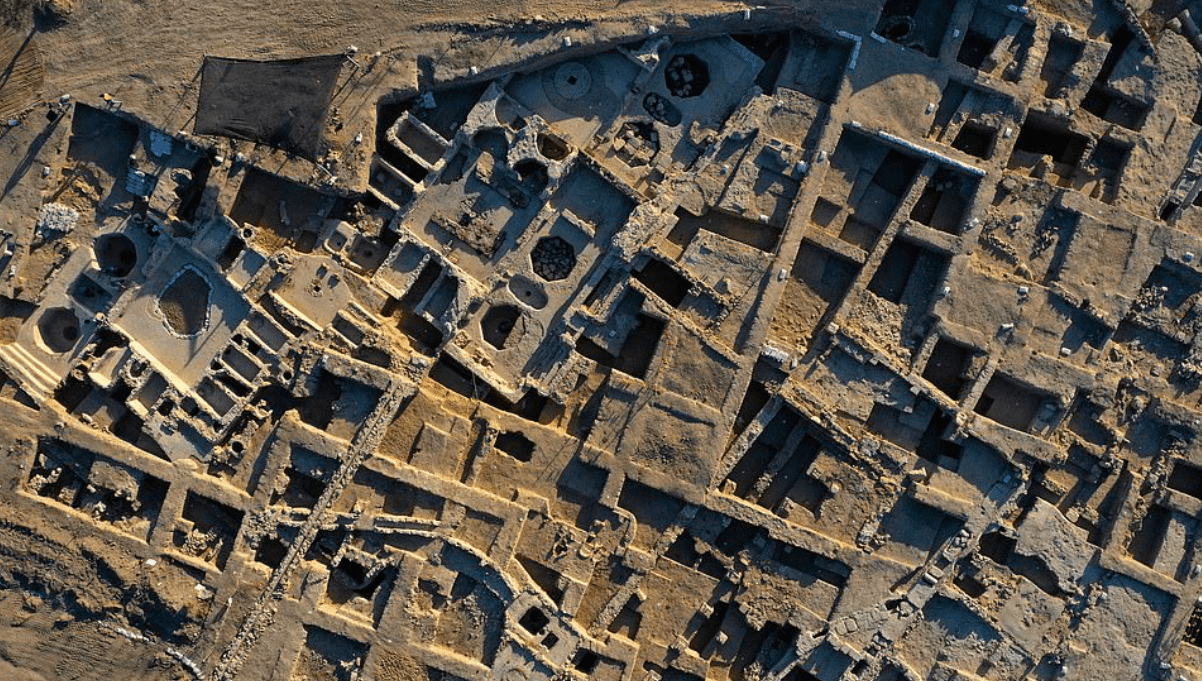
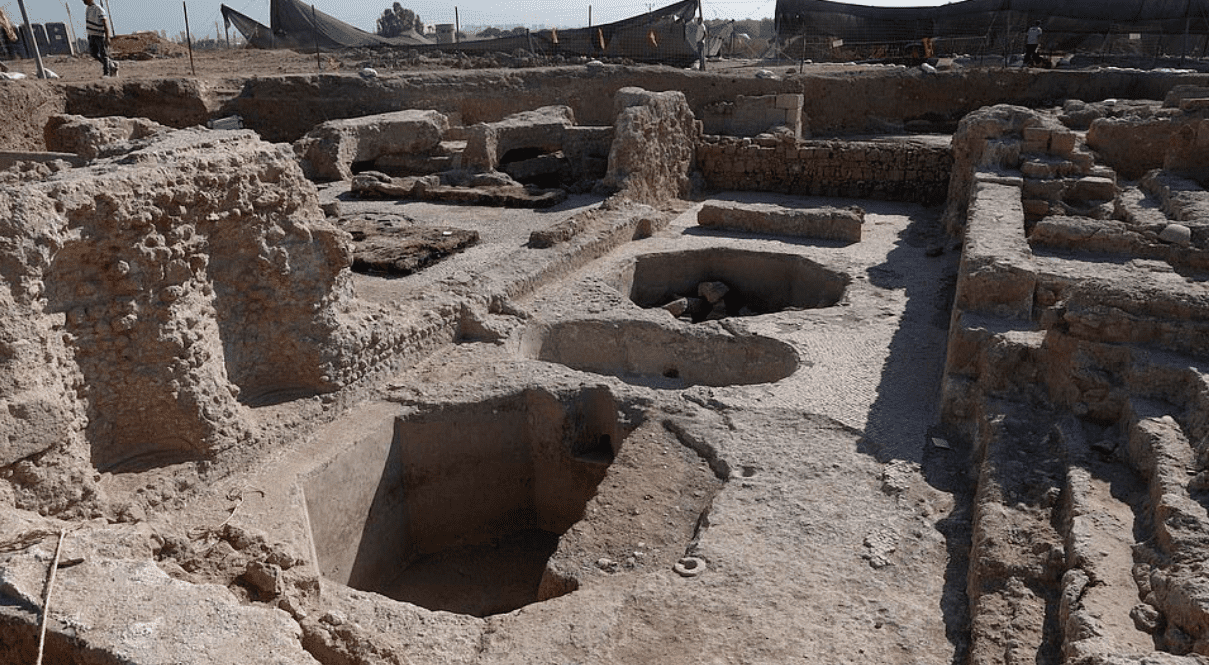
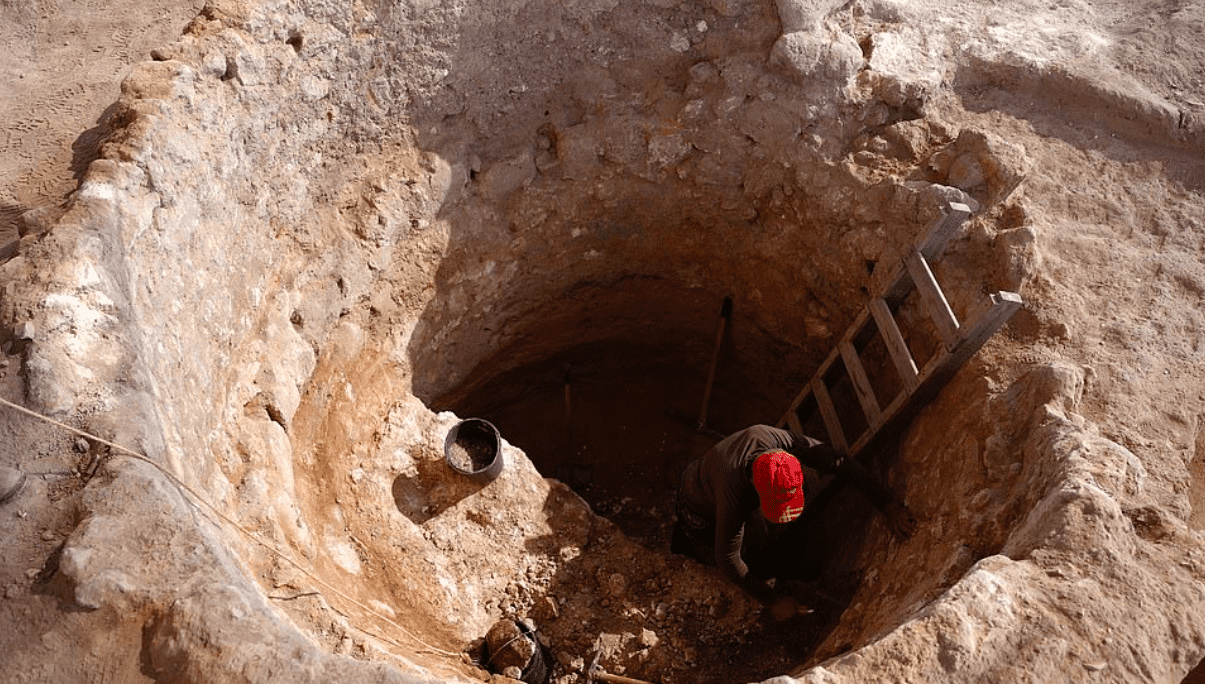
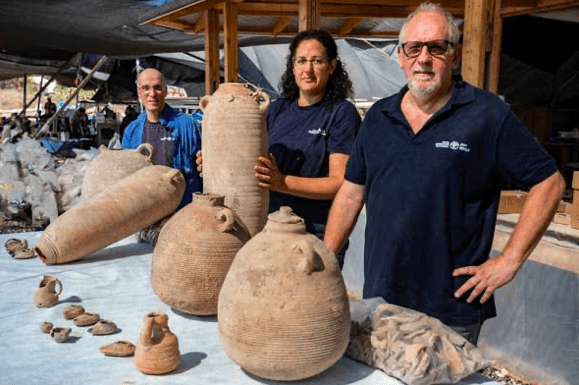
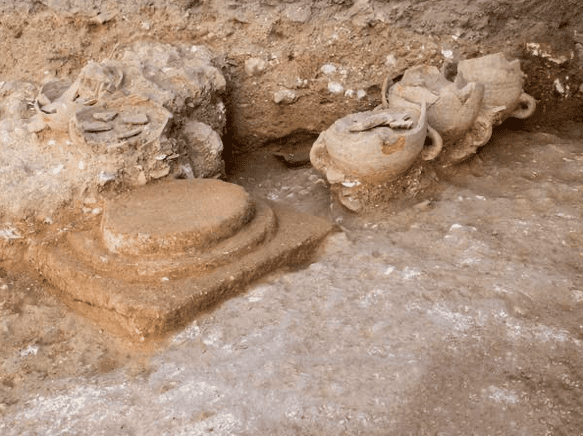
Photos: All photos from the Israel Antiquities Authority

